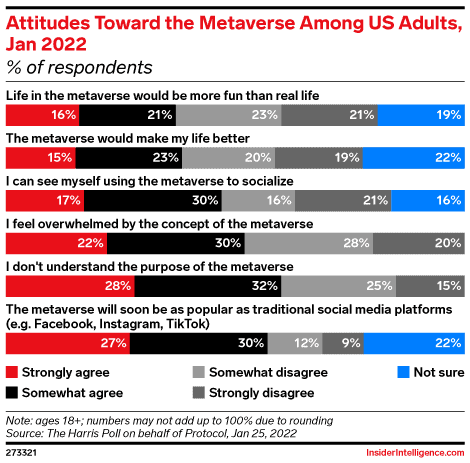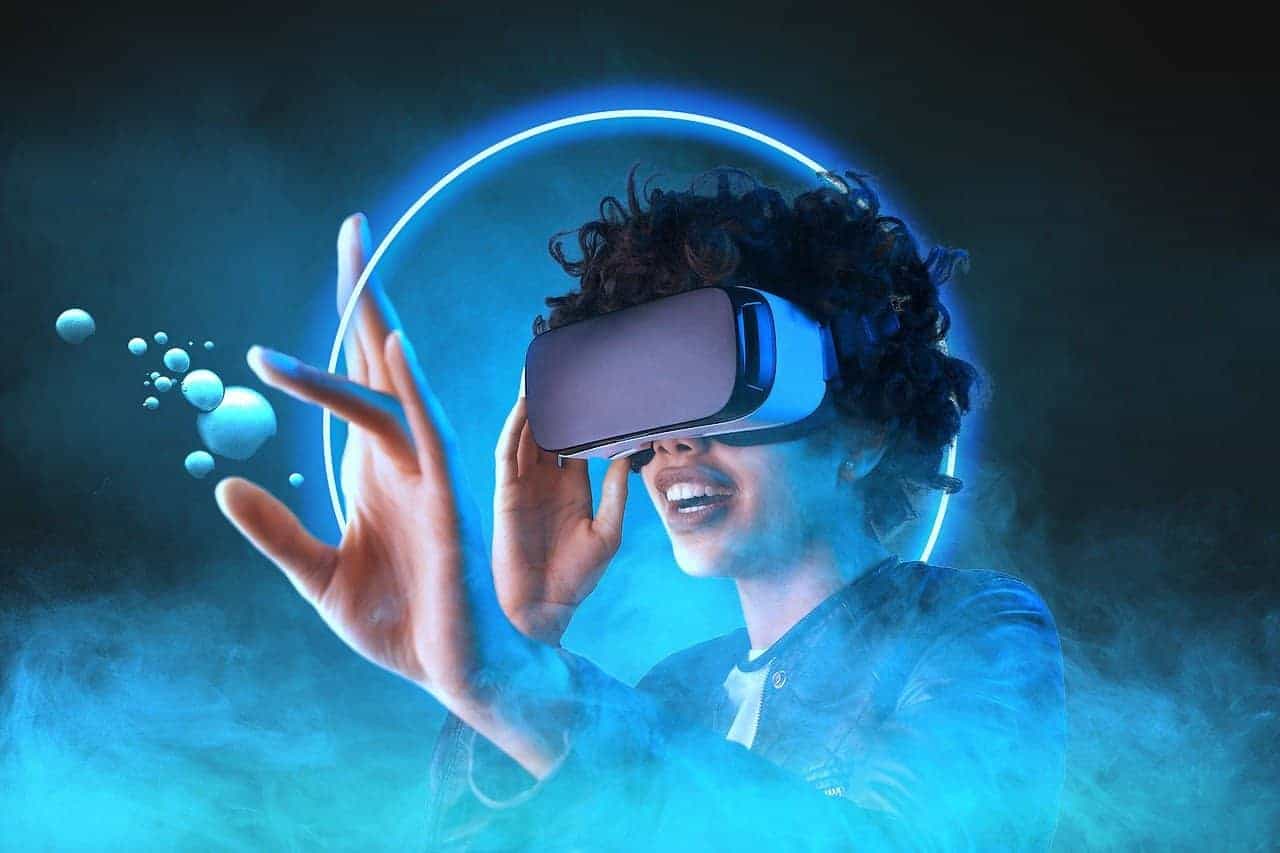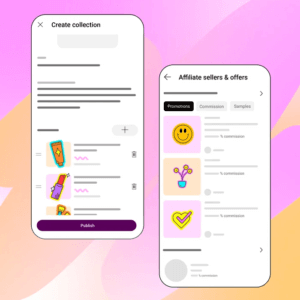Metaverse marketing is a new form of digital marketing and it is one of the hottest digital marketing trends for 2023. It utilizes virtual reality and augmented reality technology to create immersive, interactive experiences for customers. This article explores the main advantages of Metaverse marketing for brands.
Introduction: What is the Metaverse and How Can it be Used for Marketing?
The Metaverse is a virtual world where people can interact and experience a 3D environment. It is made up of multiple layers of digital content, such as virtual reality (VR), augmented reality (AR), and 3D graphics. This technology has a wide range of potential applications, including marketing.
By leveraging the Metaverse, marketers can create immersive experiences that engage users in new ways and help them better understand their products or services. With the help of 3D marketing tools, companies can create interactive visuals that allow users to explore their brand in an exciting way. In addition, the Metaverse can also be used to host events and conferences that bring together people from around the world in one place.
On Connect 2021, Mark Zuckerberg introduces Metaverse (and the name of the company became “Meta”), as a platform that allows users to create, share and experience virtual reality worlds. The Metaverse was first implemented in the “Matrix” films. The term was also used by Elon Musk in reference to a timeline of events during which humans would use virtual reality headsets to interact with computerized versions of themselves and the outside world.
Exploring the Benefits of Using the Metaverse for Branding & Advertising
The Metaverse is a virtual world where people can interact, shop and even explore. It has become increasingly popular in recent years as it allows for immersive experiences that are impossible to achieve in the real world.
Although there is still slow adoption of this ecosystem, many individuals anticipate it will be the way of the future. According to eMarketer:
“Some 60% of US adults either strongly or somewhat agreed with the statement “I don’t understand the purpose of the metaverse,” according to a January 2022 survey from Protocol and The Harris Poll. However, nearly as many agreed that the metaverse will soon become as popular as traditional social media platforms”.

Businesses and organizations have started exploring the potential of using the Metaverse for branding and digital advertising purposes. By creating 3D worlds with branded content, businesses can create unique experiences that engage their customers on a deeper level than traditional marketing campaigns.
With metaverse marketing, businesses can create immersive environments that allow customers to interact with their brand in meaningful ways. This not only helps to build brand loyalty but also gives brands an opportunity to reach new audiences and increase their visibility.
Brands have an incredible chance to interact with their target audience through the metaverse. To make the most out of it, here are 3 ideas that can be incorporated:
- Native advertising: While people traverse the metaverse, there are opportunities for native advertisement such as virtual billboards or product placement. In addition, events within the metaverse can be sponsored.
- Developing a unique virtual world platform: Metaverse investments could turn out to be substantial, with businesses creating entire games or virtual worlds tailored to their products/services. Although this approach may require significant time and resources, it’s a great way to reach the target audience in an engaging manner.
- Providing customers with a trial period for products: With the help of virtual augmented Reality, companies can now have a 3D visualization of their products prior to purchase. This lets customers try out the product without having to visit a store or leave their homes, like trying on furniture in their living room with AR or clothes they otherwise would not have access to.
10 Brands that Have Successfully Used the Metaverse for Their Campaigns
The metaverse is a virtual world that allows brands to create immersive experiences and engage with their customers in a unique way. This technology has been used by some of the biggest brands in the world to create successful campaigns. By looking at these case studies, we can gain insight into best practices for leveraging the metaverse for marketing purposes and see how it can be used to create powerful campaigns that drive engagement and sales.
1. Wendy’s: Playful “Food Fight” Game Mode on Fortnite
Turned up the heat in Fortnite with a branded game mode called “Food Fight.” Players battled over frozen beef versus fresh beef, mirroring Wendy’s dedication to never-frozen ingredients. This playful and interactive campaign resonated with younger demographics.
Results:
- 1.5 Million Minutes Watched on Twitch
- 119% Increase in Mentions of Wendy’s on social.
2. Gucci: Virtual Garden on Roblox
Fashioned a virtual wonderland with the “Gucci Garden” on Roblox. This immersive experience recreated the iconic Gucci Garden in Florence, allowing players to explore art installations, attend fashion shows, and even purchase limited-edition digital wearables for their avatars.
Results:
- Reached over 4.5 million Roblox users in the first week
- Total visits exceeded 20 million in the first month
- The average visit time was over 29 minutes, demonstrating high engagement.
- Sold over $1.2 million worth of limited-edition virtual items.
3. Nike: Sneaker Revolution in the Metaverse with Digital CloneX Collection
Revolutionized the sneaker game by acquiring RTFKT, a leading NFT footwear brand. Together, they launched the “CloneX” collection, featuring 20,000 unique virtual sneakers with customizable traits, instantly captivating the crypto and fashion communities. As a result, Nike solidified its position as a pioneer in Web3 innovation, while RTFKT cemented its place at the forefront of virtual fashion.
4. Rexona: World’s first Metaverse Marathon
Forget physical limitations, Rexona’s Degree Metathon in Decentraland rewrote the rules of marathons. This inclusive event offered a 26.2-mile virtual journey through stunning Decentraland landscapes, accessible to all, even those with disabilities. Adaptive wearables like wheelchairs and running blades allowed participants to create avatars that truly reflected their unique identities.
5. Magnum: Museum in the Metaverse
Art and indulgence collide in Magnum’s Pleasure Museum, a virtual exhibition hosted at the MET AMS metaverse festival in Amsterdam. Guests explored galleries showcasing collaborations between Magnum and renowned artists, designers, and sculptors. The experience transcended the virtual, with users ordering Magnum ice cream from a metaverse vending machine and receiving real-world deliveries, blurring the lines between virtual and physical pleasure.
6. Sunsilk: A Safe Space for Girl Gamers on Roblox
Empowering girls is at the heart of Sunsilk’s mission, and Sunsilk City on Roblox provides a safe and inclusive space for young female gamers. This vibrant city offers opportunities to connect with role models, learn about real-world skills through training programs, and have fun with mini-games that celebrate creativity and positivity. Sunsilk City stands as a testament to the brand’s commitment to supporting girls’ ambitions and breaking down stereotypes in the virtual world.
7. Coca-Cola: Pixel Point in Fortnite
Transformed taste buds in the virtual world with “Pixel Point” within Fortnite. This interactive experience allowed players to participate in mini-games and sample different flavors of Coca-Cola Zero Sugar Byte, a new product launched first in the metaverse.
8. Burberry: Fashionably Blank in the Metaverse’s Blankos Block Party
Partnered with Mythical Games to create two spellbinding NFT collections within the metaverse game “Blankos Block Party”. These collections featured limited-edition virtual Burberry clothing and accessories, adorned on iconic characters like Sharky B and Minny B, and offered access to an exclusive social space called “The Oasis.”
9. Warner Music Group: SandBox Rocks the Metaverse with Virtual Concerts and NFTs
Established “SandBox,” a virtual concert venue within The Sandbox metaverse. This groundbreaking platform allows artists to host virtual concerts, engage with fans, and even sell NFTs related to their music. Warner Music Group has partnered with artists like David Guetta and Deadmau5 to create unforgettable virtual experiences. SandBox has become a premier destination for virtual concerts, attracting millions of fans and generating new revenue streams for artists. This initiative demonstrates the potential of the metaverse to revolutionize the music industry and bring fans closer to their favorite artists.
10. Balenciaga: Debuts Virtual Fashion Line in Fortnite
Dropped a virtual fashion bomb in Fortnite with a dedicated Balenciaga store. Players could purchase exclusive virtual clothing and accessories for their avatars, including a limited-edition Balenciaga-branded skin for a popular character. This collaboration redefined luxury fashion in the metaverse.
The Future of Metaverse Marketing
Metaverse marketing is a new and rapidly growing field of marketing that is expected to revolutionize the way businesses interact with their customers. As the metaverse continues to expand, it will become increasingly important for businesses to understand how to effectively use this technology in order to get the most out of their marketing efforts.
To learn more about digital marketing trends, download our free Digital Marketing Trends 2023 Report (PDF).








